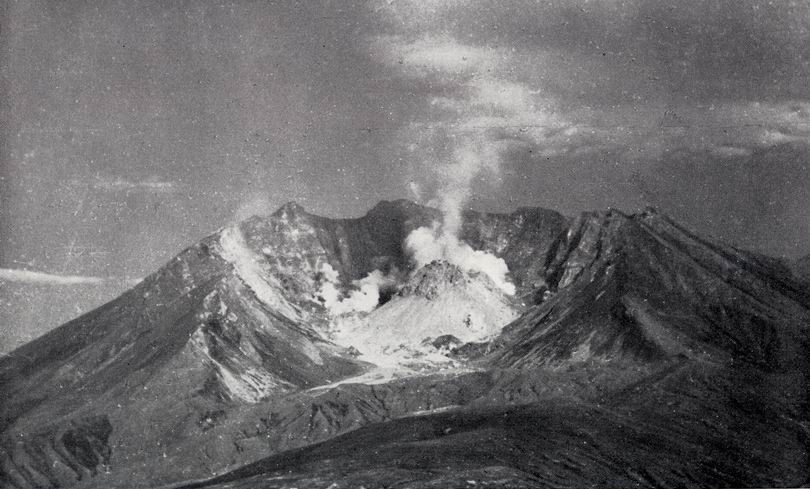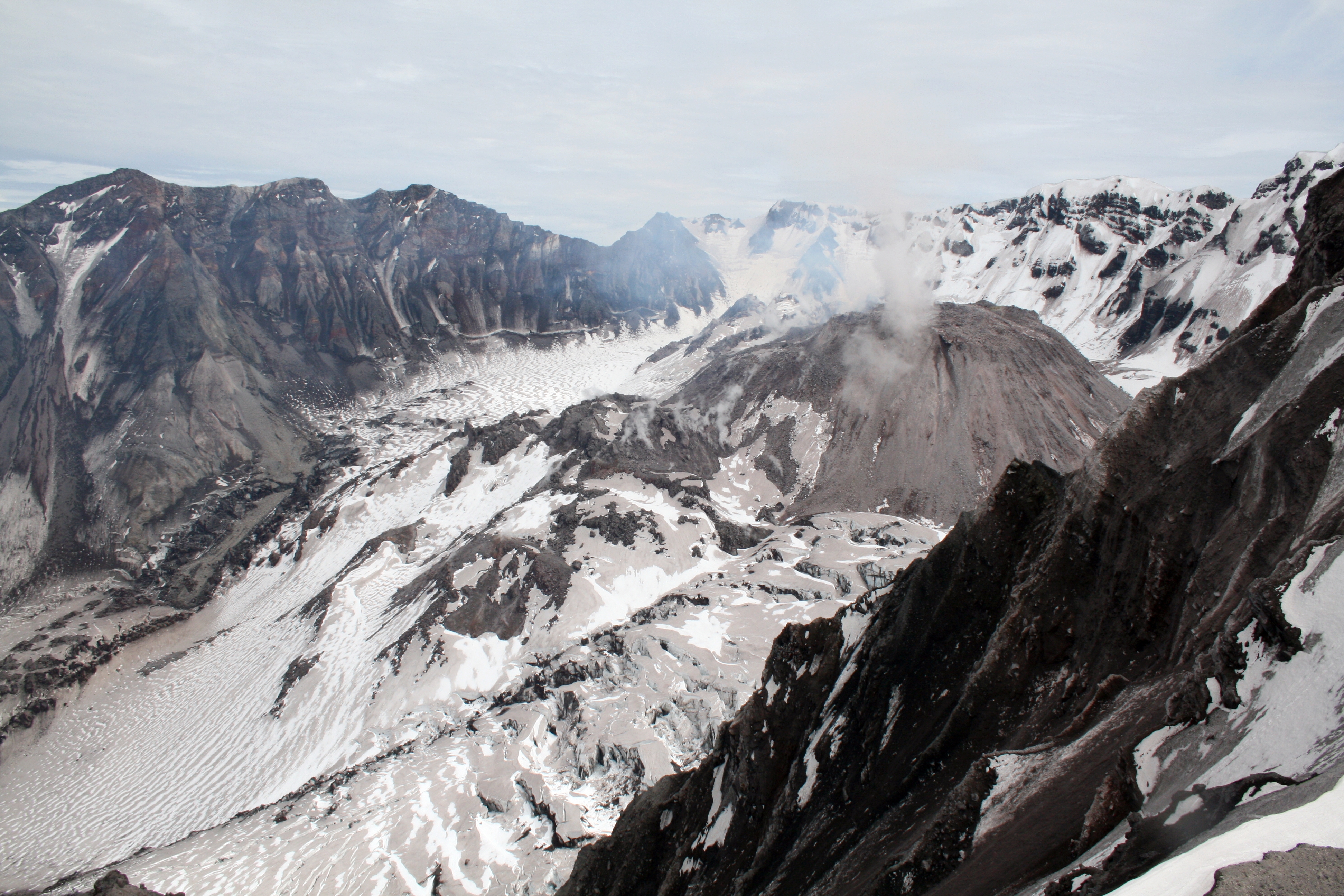Bezymianny vs. Mount St. Helens


Who's who? If
the photos weren't obviously taken at different
time periods, you would probably have a hard time telling. Bezymianny
is on the left. The photo
is taken in 1956, only 6 months after the eruption that formed the
horseshoe caldera. The photo on the right is Mount St. Helens, taken 3
years after the May 18 ,1980 eruption.
As you can see, dacitic domes were formed after both eruptions, however
the dome built much faster at Bezymianny than at Mount St. Helens.


Dome building has continued at both
volcanoes to the present. The photo on the left is at
Bezymianny volcano in 1981, while the photo on the right is from Mount
St. Helens in 2007.
At Bezymianny, dome building has been
accompanied with very large (plinian eruptions). This is a
departure from the activity seen at Mount St. Helens.
Currently, Bezymianny has plinian eruptions two times a year.
In this project, I plan to
find the similarities and the differences in seismicity between the two
volcanoes in
order to find the parameters that are important in driving the volcanic
processes. I also plan to use the relative maturity of the
eruptive sequence at Bezymianny to look into the future of Mount St.
Helens and identify pre-eruptive earthquake sequences that might lead
to large plinian eruptions.